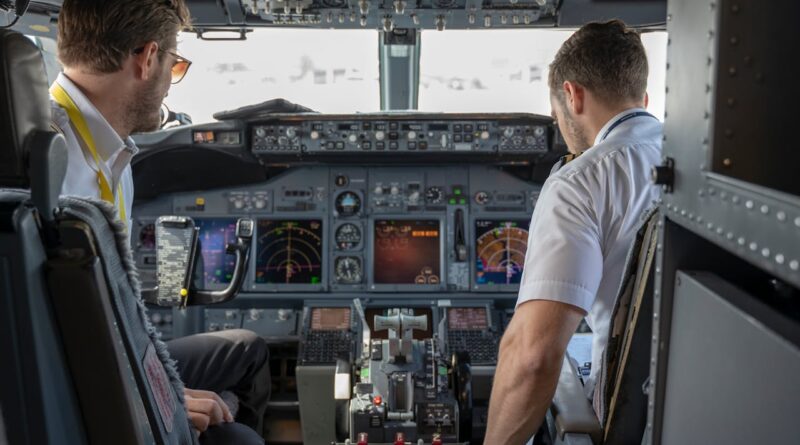In the hyper-competitive world of aviation, delivering seamless customer experiences while keeping operations efficient is no longer optional—it’s essential. This Airline Booking Case Study dives deep into how SkyGlide Airways, a mid-sized international airline, transformed its outdated booking system into a modern, user-friendly platform that increased revenue, reduced support tickets, and elevated customer satisfaction to new heights.
The Challenge: Cracks in the Booking Experience
Before embarking on its digital overhaul, SkyGlide Airways was struggling with a range of pain points that impacted both customers and internal teams. Booking a flight, especially during peak seasons, was a frustrating experience for passengers. The airline’s legacy system, developed in the early 2000s, lacked modern functionalities like real-time inventory updates, dynamic pricing, or a mobile-optimized interface.
Customers often abandoned their bookings midway due to unclear pricing structures, hidden fees, or slow loading pages. Many were forced to call the customer support center for assistance—leading to long wait times and mounting operational costs. Internally, the airline’s IT department faced challenges in maintaining the old infrastructure, while the marketing team struggled to deploy personalized promotions effectively due to fragmented data systems.
SkyGlide’s leadership realized that if they wanted to keep up with digitally agile competitors like Delta and Emirates, a radical digital transformation of their booking system was imperative.
The Solution: Reinventing the Airline Booking Ecosystem
To turn things around, SkyGlide partnered with a leading digital consultancy specializing in aviation technology. The transformation wasn’t just about building a better website—it was a complete rethinking of how users interacted with the brand online and how the back-end systems supported this experience.
The first step involved rebuilding the booking platform from scratch using modern web frameworks and mobile-first design principles. This new platform was fast, intuitive, and responsive across devices. Fare searches became predictive, offering customers dynamic suggestions based on historical trends, seasonal availability, and personal preferences. Instead of cluttered pages, the new UI displayed clean pricing breakdowns and allowed travelers to compare fare classes on the same screen—significantly reducing friction in the decision-making process.
Equally important was the seamless integration of AI-driven personalization. By analyzing customer data from past flights, browser behavior, and loyalty status, the system could now recommend personalized flight deals, seat upgrades, and ancillary services such as meals, lounge access, and travel insurance. This enhanced targeting led to a noticeable increase in upsells and cross-sells, translating directly into higher revenue per booking.
Behind the scenes, SkyGlide transitioned to a cloud-based infrastructure that enabled real-time updates across departments—whether it was adjusting seat availability, updating schedules, or managing cancellations. This real-time syncing significantly reduced booking errors and allowed staff to reallocate resources with greater efficiency.
AI-Powered Support and Automation
Another transformative aspect of the upgrade was the implementation of an intelligent AI chatbot that could handle common customer queries such as flight status, baggage policies, and even cancellations. Unlike traditional bots that relied on rigid rules, this virtual assistant utilized natural language processing (NLP) to understand and respond to questions with human-like accuracy.
For customers, this meant they could get help instantly—whether on the app, website, or even through social platforms—without having to wait in a queue. For the airline, it meant a 40% reduction in call center volume and lower operational costs.
The chatbot also integrated with the booking engine, allowing users to make modifications mid-conversation, such as changing travel dates or adding baggage. This kind of contextual, responsive interaction added another layer of convenience that greatly improved customer satisfaction.
Continuous Optimization Through A/B Testing
Rather than relying on intuition, the development team implemented a culture of data-driven iteration. Every new feature, layout change, or promotional banner underwent A/B testing. For instance, they experimented with a floating “Best Price Alert” badge next to fares, which increased clicks by 12%. Even subtle wording changes on call-to-action buttons were tested and optimized.
These iterative improvements, backed by analytics and behavioral heatmaps, created a flywheel effect where the booking platform continued to evolve based on real-time insights.
Tangible Results: Performance Metrics One Year Later
The outcomes of the transformation were substantial. Website conversion rates improved by 27%, while the percentage of mobile bookings jumped from 38% to over 57%—a clear sign that the mobile-first approach was working. Ancillary revenue per booking rose by 15%, driven by better personalization and upselling techniques. The call center, once overwhelmed, saw its monthly volume drop significantly, easing pressure on staff and allowing them to focus on high-priority cases.
Most importantly, customer satisfaction scores soared. Previously hovering around 74/100, SkyGlide’s CSAT rating improved to 86/100, with positive feedback highlighting the smoother navigation, faster checkout, and proactive support features.
Here’s a breakdown of key performance indicators:
| Metric | Before Transformation | After Transformation | Change |
| Conversion Rate | 3.2% | 4.1% | +27% |
| Mobile Bookings | 38% | 57% | +50% |
| Ancillary Revenue per Booking | $14.80 | $17.00 | +15% |
| Monthly Call Volume | 90,000 | 54,000 | -40% |
| Customer Satisfaction | 74/100 | 86/100 | +16% |
Conclusion: A Blueprint for Airline Digital Success
SkyGlide Airways’ Airline Booking Case Study demonstrates that true innovation lies in understanding user pain points and aligning solutions with both technological advancements and human needs. By redesigning their system with customer experience and operational agility in mind, they not only boosted conversions and revenue but also strengthened brand loyalty.
As the aviation industry faces increasing demand for seamless digital interactions, this transformation serves as a powerful example of how airlines can thrive in the digital era by investing in scalable, intelligent, and user-focused booking platforms.

































